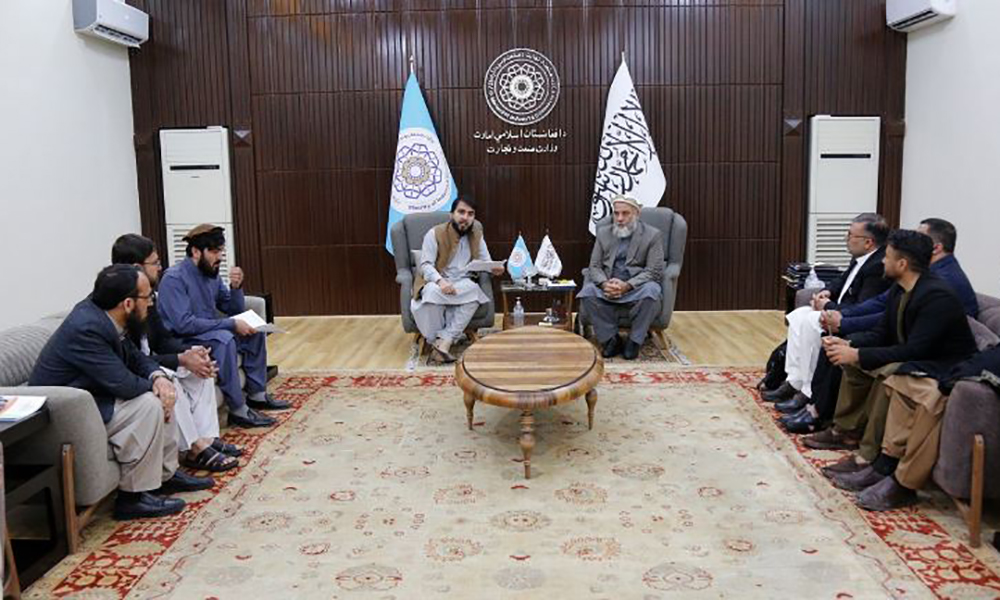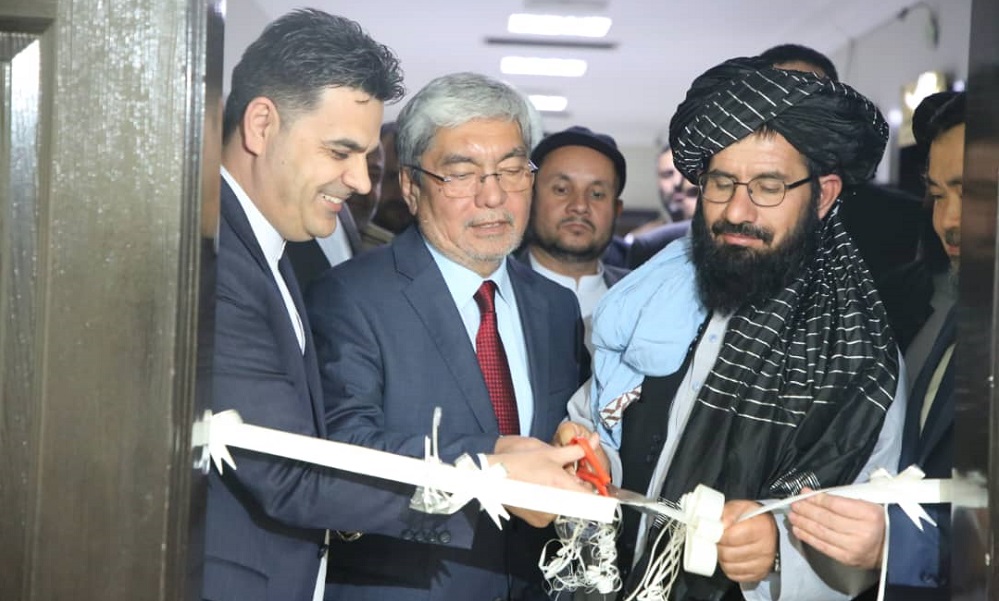Business
Foreign ministry says CPEC project will help boost economy

Hafiz Zia Ahmad Takal, the spokesman of the Ministry of Foreign Affairs of the Islamic Emirate, says that by connecting to the China-Pakistan Economic Corridor (CPEC), Afghanistan will be able to connect to the countries of the region and Europe and continue to attract investment.
Takal said that with the advent of security in the country, it is now necessary to implement large projects, including projects such as CPEC.
China-Pakistan Economic Corridor is a framework of regional connectivity.
CPEC will not only benefit China and Pakistan but will have a positive impact on Iran, Afghanistan, Central Asian Republic, and the region.
“Afghanistan will play a key role in connecting the countries of the region. Considering the geographical location of Afghanistan, it is a very important point, especially for Asian countries, which can be used in the connection and transit of the region,” Takal said.
“Islamic Emirate of Afghanistan has provided investment grounds for the international community and regional countries to invest in Afghanistan and implement their projects,” he said.
This comes after the recent tripartite meeting of the Foreign Ministers of the Islamic Emirate, China and Pakistan in Islamabad, where it was announced that Afghanistan would be included in this key project.
In a statement issued after the meeting, the group noted the importance of continuing economic cooperation with Afghanistan and the implementation of TAPI, CASA-1,000 and railway projects. Pakistan’s Foreign Minister Bilawal Bhutto Zardari and China’s Foreign Minister Qin Gang stated that the purpose of Afghanistan’s inclusion in CPEC is to continue economic cooperation with Afghanistan.
The Islamic Emirate of Afghanistan has said that being included in this project would be highly beneficial to Afghanistan as it would allow for improved import of goods and for export of domestic products.
The China-Pakistan Economic Corridor (CPEC) is part of China’s initiative called “One Belt One Road”, which China is hoping will connect regional countries and boost trade.
Business
Commerce ministry inks 10 MoUs to boost development of small and medium-sized businesses

The Ministry of Commerce and Industry said Thursday it has signed cooperation agreements with ten institutions to support the development of small and medium-sized enterprises.
Nooruddin Azizi, Acting Minister of Commerce and Industry, said: “In the implementation of projects, we must pay special attention to our activities and actions and try to make useful use of the projects according to the requirements and benefit the beneficiaries.”
These ten institutions are to present their projects, the total value of which is around over $1.1 million. The projects will be carried out in Kabul, Baghlan, Ghor, Herat, Logar, Nangarhar, Balkh, Badakhshan and Jawzjan provinces and provide direct jobs for about 1,000.
To date, the ministry has signed MoUs for 72 projects in total, collectively valued at about $53.6 million.
These agreements have been signed with domestic and foreign companies for the establishment of small and medium-sized businesses.
In accordance with the principles and laws of the Islamic Emirate and prioritizing the implementation of projects for immigrants and returnees and internally displaced people, the ministry said 635,865 people will benefit through jobs directly and over 4.3 million will benefit indirectly in 25 provinces once these projects are implemented.
Business
Export volume totals over $140 million in last month of 1402

The National Statistics and Information Authority (NSIA) confirmed Tuesday that in the last month of solar year 1402, (March 2024) Afghanistan’s exports totaled $141.1 million and imports totaled $789.6 million.
This was down from $174 million for exports in the same period in 1401. However, imports increased by $99.2 million in 1402, up from $690.4 million.
Most exports in the last month of 1402 went to Pakistan, India and the United Arab Emirates, while in the last month of 1401 exports went to Pakistan, India and China.
Business
Afghanistan-Kazakhstan chamber of commerce opens in Herat

The Ministry of Interior said the governor of Herat province Islam Jar met with Alim Khan Yasin Gildaye, Ambassador of Kazakhstan to Afghanistan, to discuss various issues around trade.
According to the ministry, the two sides discussed the expansion of trade facilities, increasing the volume of trade exchanges between traders of the two countries, reducing customs tariffs, solving the challenges of traders and issuing visas to them.
The Afghanistan-Kazakhstan Chamber of Commerce has been opened in Herat in order to facilitate and increase trade between the two countries.
-

 Sport4 days ago
Sport4 days agoACL fever grows as fixtures finalized
-

 World4 days ago
World4 days agoUS will not take part in any Israeli retaliatory action against Iran
-

 Latest News4 days ago
Latest News4 days agoOver 50 people dead in traffic accidents over Eid
-

 Latest News4 days ago
Latest News4 days agoUS identifies Kabul airport suicide bomber
-

 Latest News4 days ago
Latest News4 days agoGood rains enable DABS to increase power production in Kabul
-

 Business4 days ago
Business4 days agoAfghanistan-Kazakhstan chamber of commerce opens in Herat
-

 World3 days ago
World3 days agoIsraeli military vows response to Iran attack as calls for restraint mount
-

 Latest News3 days ago
Latest News3 days agoPakistani police give Afghans in Balochistan one day to leave
























